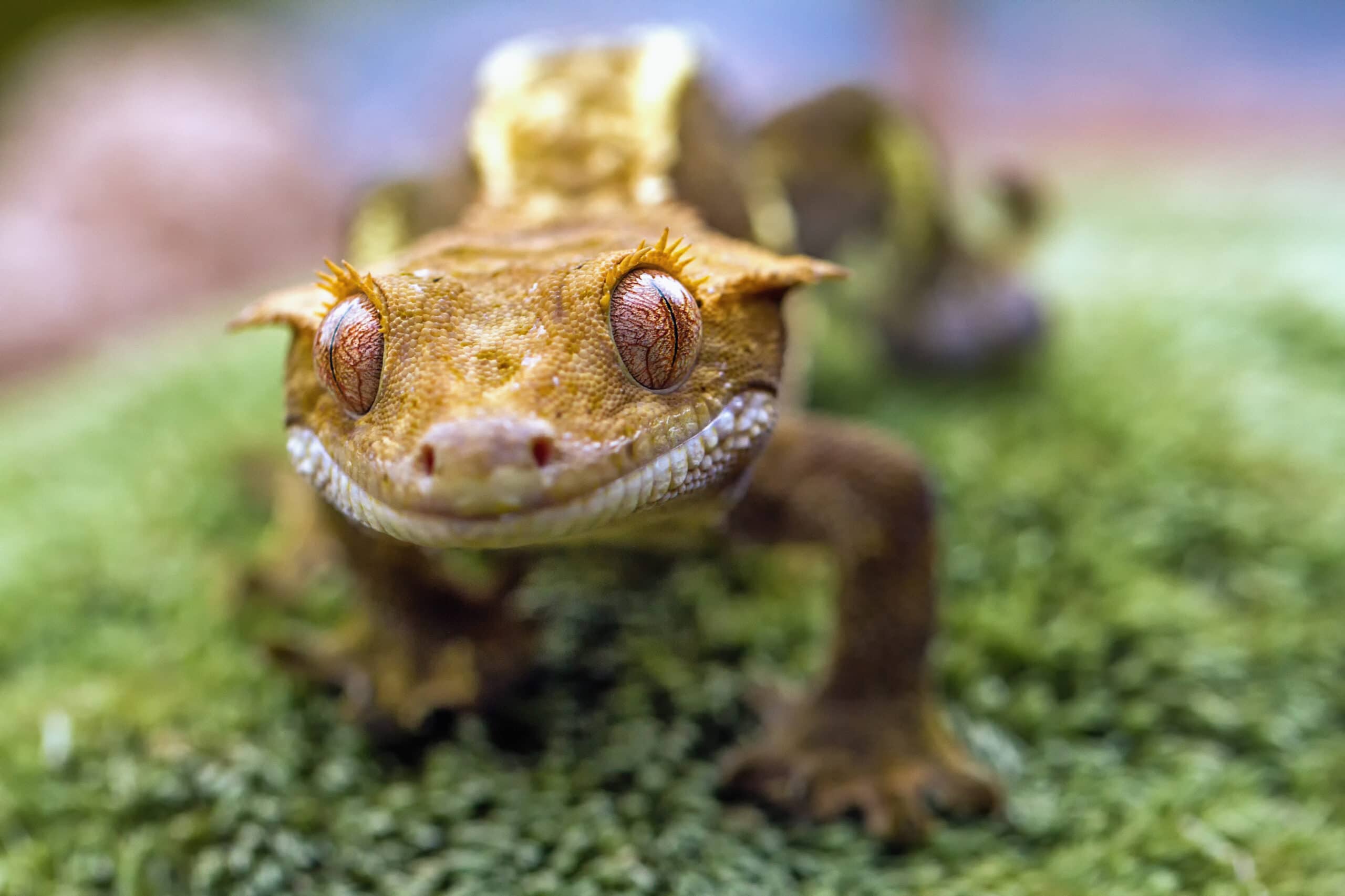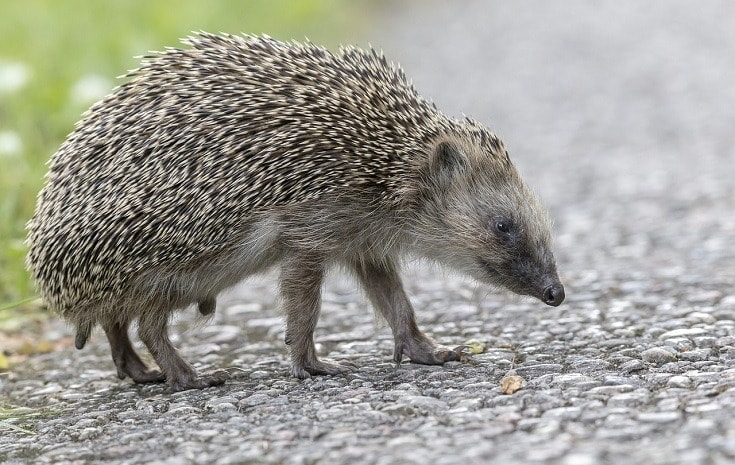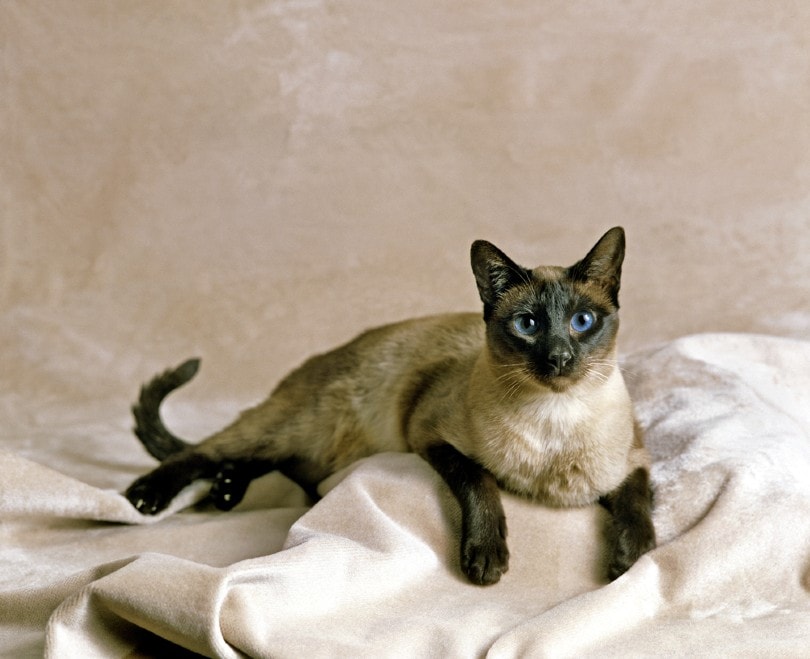VET APPROVED

The information is current and up-to-date in accordance with the latest veterinarian research.
Learn more »Click to Skip Ahead
Geckos live in various habitats on every continent except Antarctica. For several decades, they have been one of the most popular exotic pet reptiles around the world, thanks to their unique appearance, vibrant colors, and generally docile temperaments.
Geckos are not poisonous or venomous (yes, there’s a difference) and can make excellent pets for those equipped to handle their specific care requirements. Keep reading to learn more about geckos as pets and what makes an animal poisonous versus venomous.

The Difference Between Poisonous and Venomous
Geckos are neither poisonous nor venomous, but it is crucial to know the difference 1 between the two terms because, though they involve dangerous toxins, they are different. You often hear the term “poisonous snake” when someone is referring to a Copperhead or a Rattlesnake, but the truth is, they are venomous, not poisonous. Conversely, Poison Dart Frogs and Pufferfish are two examples of poisonous animals. So, what’s the difference exactly?

Poison
Poison is a toxin that enters the body through inhalation, ingestion, or absorption through the skin. It can occur naturally in plants and animals but can be synthetic or manufactured. The Poison Dart frog secretes a poison as a defense against predation in the wild. The poison is absorbed through the skin and can paralyze and kill larger predators.
Pufferfish are dangerous when touched or eaten because they contain the deadly toxins tetrodotoxin and saxitoxin, which can cause severe illness and death when consumed.
Venom
Venom is a natural type of poison used to kill prey or as a defense mechanism. It is injected into the body and enters the bloodstream through a bite or a sting. Envenomation can range from mild to severe, depending on the species. There are different types of venom, and each affects the body’s systems differently.
Only experienced, well-trained keepers and conservationists should be involved in caring for venomous or poisonous animals. They are not the safest pets to have around children or those who aren’t aware of the risks that such pets pose.

Geckos: Poisonous or Venomous?
Geckos are neither poisonous nor venomous. This is partly what has made them popular exotic pets. However, common house geckos are usually labeled as poisonous because it is thought that consuming any food that they’ve come into contact with may lead to health problems in humans.
House geckos pose this risk because they naturally carry pathogens that are harmful to humans. These pathogens can contaminate the surfaces they touch, including food they pass over or come into contact with2.
Due to this inherent risk, you should avoid eating food your pet gecko has touched. It is also essential to thoroughly wash your hands after handling your pet. Before picking up your gecko, wash and dry your hands since they may try to bite you if they think there’s food on your hand.

Tips for Keeping Your Pet Gecko Healthy and Happy
1. Know Your Species
Geckos live on every continent except Antarctica and can adapt to various climates and habitats. When choosing a pet gecko, you must research the species you plan on keeping because you will need to meet their unique care requirements to keep them as happy and healthy as possible.
Some species may be great for beginners, while others are best suited for advanced keepers. Improper care and husbandry can lead to serious health issues and a shortened lifespan for the gecko.
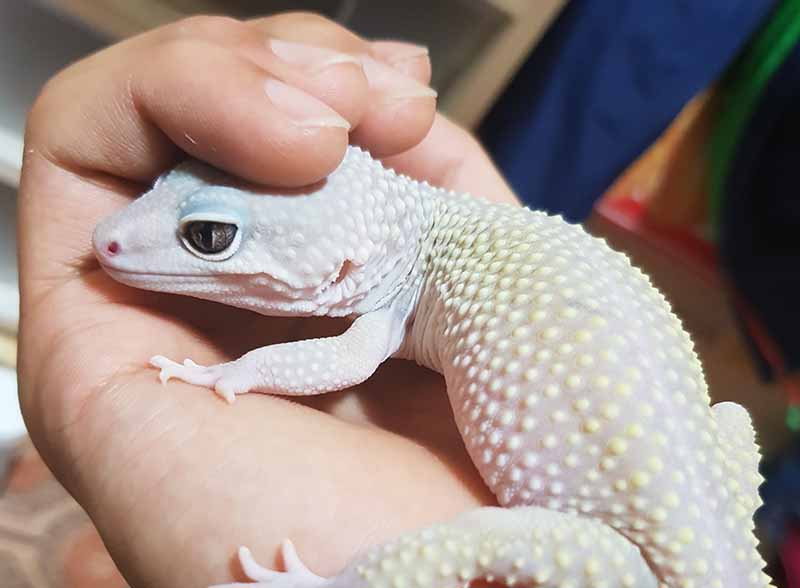
2. Know the Most Common Gecko Species in the Pet Trade
There are numerous species of geckos in the world. The most common species you’ll come across in the pet trade include but are not limited to those listed below. While they may be the most common types, there are plenty of others available.

Setting the Proper Environment
A proper habitat is essential for your gecko’s health. Housing reptiles requires very specific care requirements that will vary by each unique species. Knowing your species is the most important part of care and husbandry.
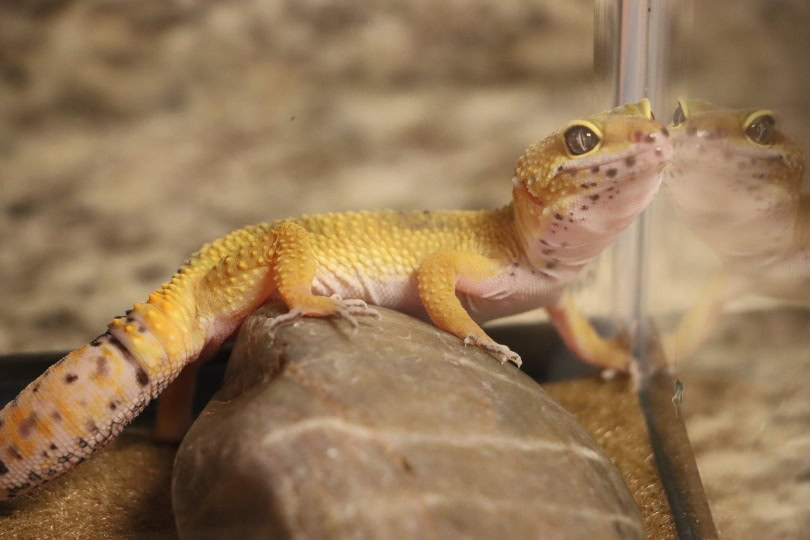
Enclosure
Depending on the type of gecko you have, you need a secure enclosure that is suitable for their size and best mimics their natural environment. Some species are arboreal, spending a lot of time in trees. In contrast, others are terrestrial, remaining on the ground and hiding in burrows, rocky outcrops, or logs and dead vegetation.
Substrate and Furnishings
The substrate and furnishings in the enclosure are other essential aspects of the gecko’s environment. You may need to provide branches, vines, rocks, or other furnishings that enable them to burrow, but this will depend on the species, which is why research is so important for new keepers.
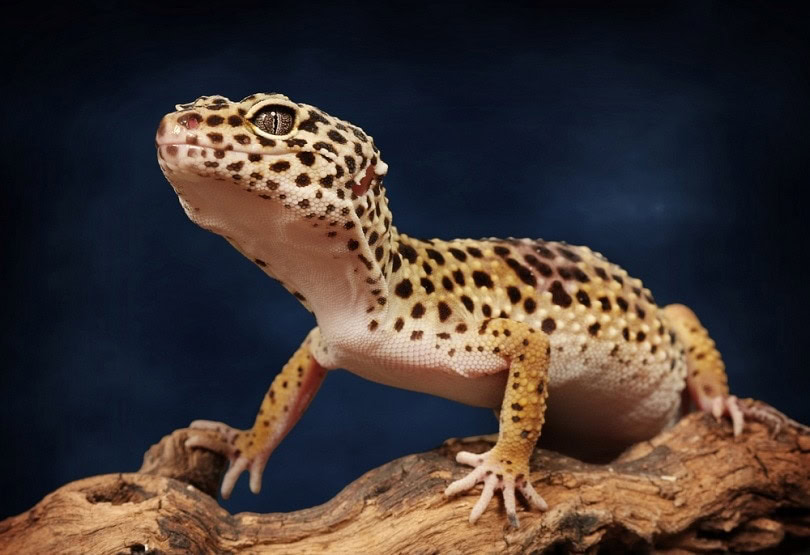
Temperature, Humidity, and Lighting
Keeping your gecko’s home at the correct temperature and humidity and providing the necessary lighting is vital to their health and well-being. Since these needs vary across the species, you must ensure that you provide your species precisely what they need. Failing to do so will result in a sick gecko, and they can easily die if not kept properly. For example, be sure to provide a proper basking area for them.

Feeding Your Gecko a Nutritious Diet
Most geckos are insectivores, requiring a diet of various insects and worms. Prey like crickets, waxworms, earthworms, mealworms, fruit flies, moths, crickets, or grasshoppers should be offered on average every 2 to 4 days. The specific types will depend on the kind of gecko you have, their age, and their size.
Since geckos are nocturnal creatures, gut-loaded insects and other food should ideally be served at night when they come out to look for food. They should also have access to fresh, clean water at all times. They do not usually drink from bowls but lap up condensation or dripped water.
Always speak to your exotic animal veterinarian about your gecko’s recommended diet or if you have any questions or concerns over what to feed them.
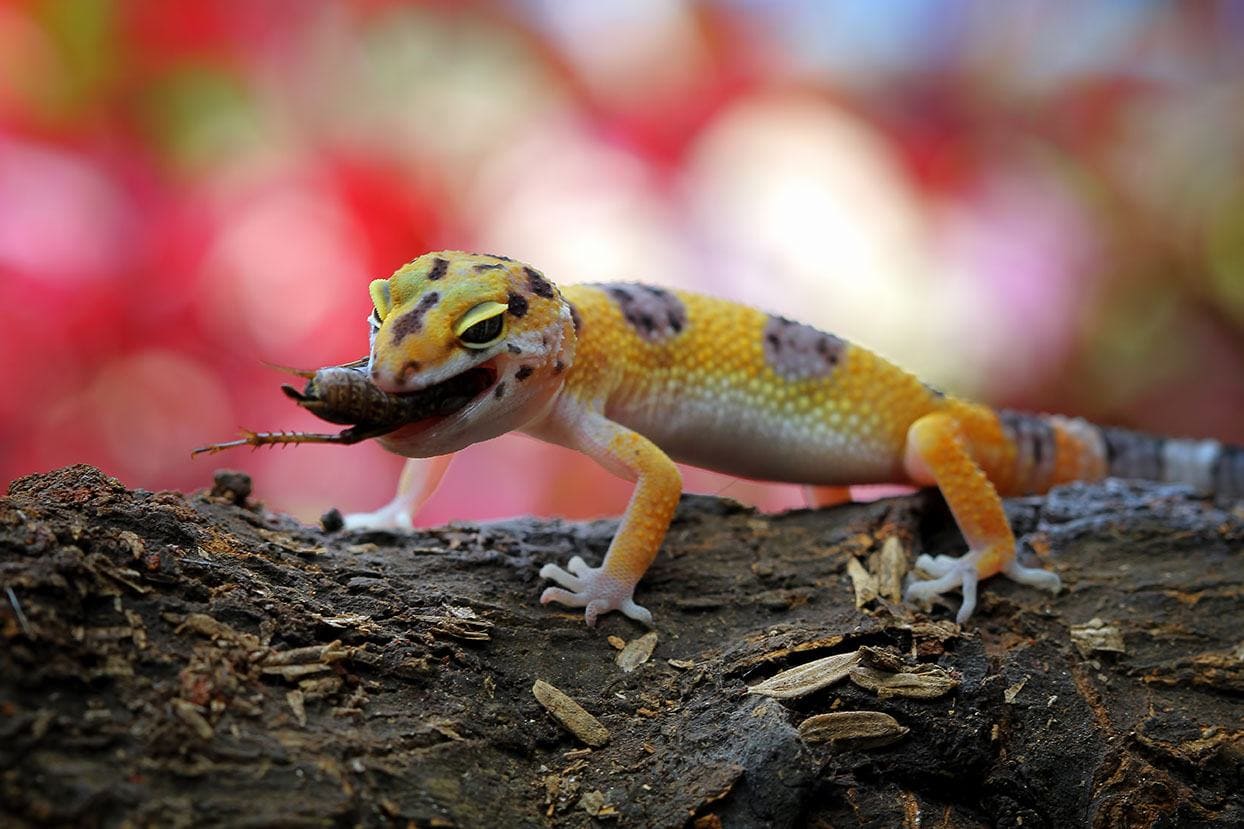

Handling Your Gecko Gently and Safely
Different species of geckos will be more tolerable to handling than others. Some are more outgoing, while others may be timid and solitary. Handling can significantly stress out most reptiles, so it’s important to handle them gently and in an area where they are safe from harm. To keep them tame, it’s a good idea to handle them regularly for short periods.
Try your best to avoid stressing them out too much, and be mindful of your gecko’s temperament. Always give a brand-new gecko at least a week or two to decompress and adapt to their new environment before handling them.
Get Established With an Exotic Animal Veterinarian
Any gecko or reptile keeper should be established with an exotic animal veterinarian in their area. When fed a proper diet and given the right care and husbandry, these animals can be fairly hardy and low maintenance, but like anything else, they are susceptible to health conditions that will need to be treated by a medical professional. They are also good at hiding illness, hence why it is recommended that they get routine veterinary check-ups twice a year.

Conclusion
Geckos are neither poisonous nor venomous and can make rewarding pets in the right environment. Because there are so many types of geckos with origins all over the world, a potential keeper should be familiar with the species in which they are interested. i. Geckos are exotic animals with varying husbandry requirements and need proper veterinary care to have the best chance to live a happy and healthy life.
Featured Image Credit: Kefca Shutterstock
